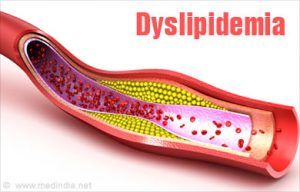Kidney transplant patients might be relieved of the burdens of hemodialysis but life after kidney transplantation is not devoid of complications.
Apart from managing the financial and social burdens of kidney transplantation, medical problems are of the utmost importance to be timely evaluated and managed.
Medical Complications in a Kidney Transplant patient:
Patients after kidney transplantation are mostly worried about the function of their new kidney. Graft rejection, as we call it, is the failing transplanted kidney.
This is the most fearsome complication of all. Other medical problems include post-transplant diabetes, infections, hypertension, obesity, dyslipidemias, cardiovascular disease, anemia, malignancy, bone diseases and complications related to pregnancy.

1. Graft rejection – is my kidney failing!!
Kidney transplant patients are especially worried about the transplanted kidneys and that whether the stress they have encountered will be fruitful or not.
Since kidney transplant patients are surviving on a single kidney, kidney function is always suboptimal. Apart from living on a single kidney, other factors are also important to be blamed for renal dysfunction.
Ischemic injury (reduced blood supply) to the transplanted kidneys is an important cause of renal dysfunction.
Ischemic injury especially occurs when the kidney is taken from a deceased donor. Delay during the surgical procedure might also be one of the factors.
Immuno-suppressants like tacrolimus causes blood vessels to narrow and may lead to ischemic injury to the transplanted kidney.
Prompt evaluation is especially indicated when there is a rise in serum creatinine of more than 50% from the baseline.
Patients should be worried about their kidneys when they notice the following symptoms:
- Urine volume becomes less than normal,
- Blood pressure starts to rise,
- Patients develop swelling around the eyes or the legs
- Weight gain
- Patients have nausea, vomiting, and flank pain
- Rising creatinine and urea
A rising creatinine and microalbuminuria (albumin in the urine) are the two hallmark indicators of kidney dysfunction.
Rising creatinine and microalbuminuria are probably the most worrisome of all the issues as it depicts the prognosis and success of the graft.
A rise in creatinine of more than 50 % from the baseline should always be evaluated.
Following are some of the causes that might lead to a rise in creatinine.
- Volume depletion as occurs in dehydration
This is avoided by drinking plenty of water and early management of diarrhea and vomiting. Patients should also avoid vigorous exercises to minimize dehydration through sweating
Recurrence of the primary disease
Patients with active glomerulonephritis might notice a recurrence in their primary disease after kidney transplantation. Aggressive management of the underlying disease prior to and even after transplantation is very important.
Drug-induced nephrotoxicity
The transplanted kidney is considered as foreign by the immune system. In order to prevent the kidney from the immune system, immunosuppressant drugs are given to the patient. These drugs are important to weaken the immune system.
A weak immune system cannot attack the transplanted kidney and thus prevent graft rejection. Important adverse effects of these drugs include nephrotoxicity, hypertension, and recurrent infections.
Drug-induced nephrotoxicity should be monitored by checking blood levels of that specific drug and dose be adjusted accordingly. Renal biopsy sometimes becomes very important to look for the cause.
Infections can lead to sepsis and cause kidney injury
The most common kidney injury associated with infections is acute tubular necrosis. Prompt treatment of infection is very important to minimize damage to the transplanted kidney.
Renal artery stenosis, obstructive uropathy, and interstitial nephritis are other important causes of rising creatinine.
Microalbuminuria – a predictor of prognosis!
Microalbuminuria in kidney transplant patients also predicts the prognosis. Spot urine for albumin to creatinine ratio is usually advised. A urinalysis might show proteinuria which should be quantified using either 24-hour urine for proteins or spot urine for proteins and creatinine ratio.

2. Diabetes mellitus – a complication of kidney tranplant
Post transplant diabetes (PTDM) or new onset diabetes after transplantation (NODAT) are the terms used for patients who develop diabetes after transplantation.
Diabetes in these patients can develop due to multiple reasons.
- Most Immunosuppressant are diabetogenic i.e. cause blood sugars to rise and result in diabetes.
- The transplanted kidney metabolizes and excrete insulin efficiently and may be gluconeogenic (causes increased production of glucose).
- The patients underlying illness might predispose him to develop diabetes.
Whatever the cause is, treatment of all the patients who develop diabetes is the same. Blood sugars should be checked frequently in transplant patients.
It may be checked weekly initially and at least monthly later on. HbA1c or glycated hemoglobin may be advised at three to six months interval.
The target blood sugars in patients who develop diabetes are the same as for the general population. Treatment should focus on anti-diabetic diet and exercise followed by pharmacological intervention.

3. Infections – a scary complication of kidney transplant
Transplant patients are at risk of opportunistic and common infections especially in the first three months when immunosuppression is at its peak. The induction phase of therapy includes pulse steroids which might lead to marked immunosuppression.
Compared to the general population, kidney transplant patients are at greater risk of infections even later on, after the induction therapy is over.
The most common infections in patients following kidney transplantation are urinary tract infections and respiratory tract infections.
- Opportunistic infections
These infections are usually considered in immunosuppressed hosts like those of kidney transplant. Infections to be considered in these patients include cytomegalovirus, polyomavirus, Pneumocystis jirovecii pneumonia, and fungal infections.
- Vaccination:
Kidney transplant patients should not be given live or attenuated vaccines.
These include:
Varicella-zoster vaccine, influenza, BCG, oral typhoid, measles, mumps, rubella, oral polio, yellow fever, smallpox, and live Japanese encephalitis vaccine.

4. Anemia after kidney transplantation:
Anemia in kidney transplant patients is especially found in the first six to twelve months following transplantation. Causes of anemia in these patients are multifactorial.
Apart from blood loss anemia during surgery, anemia may also be secondary to marrow suppression by immunosuppressant drugs or infections.
The kidney graft also takes time for it to start functioning and secrete erythropoietin.

5. Hypertension and cardiovascular diseases after transplantation
kidney disease patients usually have hypertension as a premorbid condition or as a complication of kidney disease. In transplant patients, use of steroids and immunosuppressant drugs also predispose the patients at risk of developing hypertension.
Hypertension should me managed with salt restriction, exercise, and drugs to keep it under 130/80. Similarly, obesity, anemia, hypertension, and immunosuppressant drugs also predispose these patients to adverse cardiovascular renal outcomes.

6. Dyslipidemia and obesity after a kidney transplant
All patients should be screened at baseline, after 6 months and then yearly for dyslipidemia after transplantation.
Screening should include measuring total cholesterol, low-density lipoproteins, high-density lipoproteins, and triglycerides.
Dyslipidemia should be aggressively managed as it is associated with poor graft survival. Similarly, obesity needs to be managed to improve cardiovascular outcomes.
Physicians should especially focus on reducing certain drugs which can cause obesity like selective serotonin reuptake inhibitors, steroids, and calcineurin inhibitors. Diet and exercise is the mainstay of therapy.

7. Malignancy is 3 times more common in transplant patients
Cancers in kidney transplant patients are three times more common than in the general population.
Cancer screening should follow the same routine as in general population but skin cancer screening should be done frequently.
Monthly self-examination and six monthly examinations by an expert physician should be carried out. All kidney transplant patients should minimize exposure to ultraviolet rays.

8. Metabolic Bone diseases
Metabolic bone diseases are common in transplant patients. Causes include pre-transplant renal osteodystrophy, calcium and vitamin D deficiency, hyperparathyroidism and immunosuppressant drugs especially steroids.
Replacement of calcium and vitamin D is mandatory. Care should be taken to prevent hypercalcemia.

8. Kidney transplant complications in pregnancy
Fertility improves following transplantation. Pregnancy in post-transplant patients is considered as high risk.
The American society of transplantation consensus opinion states that patient can safely proceed with pregnancy providing the following conditions are met:
- Graft function is optimal. Defines as a serum creatinine of less than 1.5 mg/dl and less than 500 mg/24 hour proteins
- There are no infections that can be toxic to the fetus like cytomegalovirus infection
- The patient is not on any medicines that can be teratogenic
- The immunosuppressant regime is stable at maintenance levels.
Keeping all the medical complications in mind, both the patient and the treating physician should be cautious to manage the above problems early.
This will improve outcomes and improve survival. Patients who have undergone successful kidney transplantation have a better quality of life and overall survival rate as compared to those on dialysis.